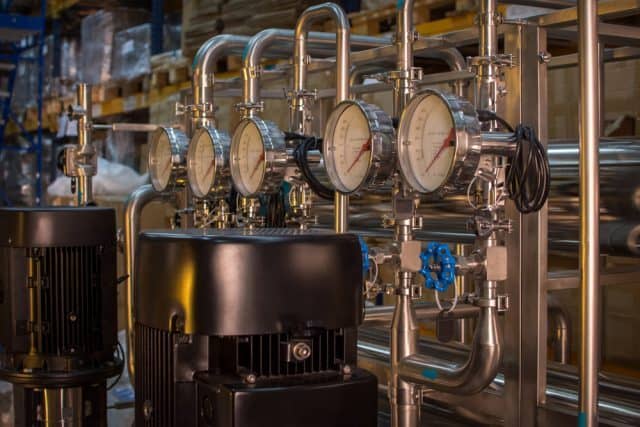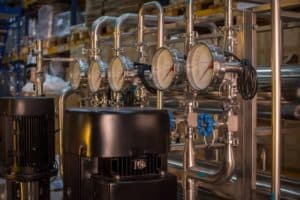The Algerian pharmaceutical sector, which depended upon massive imports to fulfill medical supply needs, is now on a path of rapid and positive progression. With an aim of improving the local medicine and medical supply needs, and to acquire scientific, technological and technical know-how, Algeria is working on important partnerships with foreign players in the industry. These partnerships will not only enable the pharmaceutical industry to grow, but will also open up avenues for better access, therapeutic innovations and an improvement in the reliability and quality of medical products.
A number of factors in present-day Algeria have increased the demand for medicines and medical products in recent times. Changing demographic indicators, the change in birth rates and the increase in aging populations are a few of the factors that have made it necessary for the North African nation to boost its pharmaceutical industry. Algeria is executing ambitious plans to set up factories and foster partnerships with world leaders in this industry. Economic operators in the government and private sectors are currently working toward the same goal of strengthening the industry.
Positive future
Current growth figures hint toward a positive future for the pharmaceutical industry in Algeria thanks to the work done over the past few years. For example, the installation of production plants has expanded positively. Estimated at $1.9 billion in 2008, the Algerian pharma market reached $3.8 billion in 2017 – a very promising sign. Also, development prospects for this industry are evaluated by professionals to stand at approximately eight percent by 2020.
During the 18th edition of the International Pharmaceutical Forum, held in Algiers on May 15 and 16, 2017, Hamou Hafed, Director of Pharmacy at the Ministry of Health, Population and Hospital Reform, stated that the supply of medicines in Algeria comes from 314 private operators, 150 wholesaler-distributors and 9,600 pharmacy dispensaries
The Forum is one of the most important events for the pharmaceutical industry in the North African region. Established in 1999 by the African Council of Ministers of Health in Yaoundé (Cameroon), the Forum held its first session in Benin in 2000; its 17th edition took place in Tunisia in 2016. Last year, the 18th edition brought together more than 3,000 participants from 60 pharmaceutical companies representing world leaders as well as African operators. A number of industry-related topics were discussed during this event.
A repeated and highlighted suggestion remained the proposal to create an Establishment of African Medicines that would harmonize the organizational and legislation-related work for the entire sector. At the Forum, Hocine Mahdi, the chief executive of Industry Medical Service, hinted at an increase of three to seven percent in the coming years in the pharmaceutical sector.
Effects on production
The wave of changes the sector is currently undergoing has repercussions in the production segment as well. According to the official figures, local pharmaceutical production has increased five-fold in the past five years. On the other hand, imports of finished and bulk goods have decreased by 14.5 percent over the same period of time. The figures also state that the budget allocated to this sector was estimated at 100 billion dinars in 2017, against 54 billion dinars in 2012.
“This progress is a proof that an expertise can be developed if technical support, master production control and a compliance with international quality standards is maintained,” says AbdelOuahed Kerrar, President of the Union National Pharmacy Operators (UNOP). To further boost this thriving sector, a new plant with a capacity of ten million units is being constructed in Rahmania in northern Algeria. A subsidiary of Jordan’s Dar Al Dawa laboratory, Medi Pharma, the plant will produce sterile ophthalmic drops.
Larbi Mohamed Adnene, director of Medical Promotion at Dar Al Dawa, says: “The plant, which required a $25 million investment, would also produce medicines related to cardiovascular, neurology, cancer, urology and other anti-inflammatory and antibiotic diseases.”
Elaborating on the production plans, Thaer Sobh, managing director of Dar Dawa Algeria and co-manager of Medi Pharma, notes: “50 varieties of medicines, from capsules to tablets, and 15 varieties of sterile drops will be produced and marketed in the coming months in Algeria.”
In a statement, Khaled al-Kurdi, managing director of Dar Al Dawa, the parent company, says: “The installation of this factory testifies the ability of Arab firms to compete with foreign products. It also reflects the importance of Algeria and the Algerian market for us.”
Further, Dar Dawa Algeria has indicated that another plant requiring a $15 million investment will be inaugurated this year. This plant plans to produce antibiotics.
Investment inflow
Given the scope for profits, international players are showing their interest in the Algerian market. Sanofi, the French biopharmaceutical company, has been investing majorly in the Algerian market. One of the projects, built across 6.6 hectares in the city of Sidi Abdallah (Zeralda), is in its final phase of completion. According to the managers of this project, the production unit will be operational by the end of the current year.
The project required an investment of 85 million euros and is expected to produce 100,000 units of medical supplies per year in both dry and liquid forms. It will be the largest Sanofi production center in Africa and the Middle East. The pharmaceutical giant has two other factories in the Algerian market, one in Oued Smar (specializing in dry medicine) and the other in Ain Benian, (specializing in liquid forms of medicine).
Haissam Chraiteh, President and CEO of Sanofi Algeria, reveals that the group plans to start production of insulin and insulin auto-injectors with a new project in Algeria.
Other partnerships
In addition to Sanofi, other regional players have also openly shown interest in the Algerian market. Last year, Algerian pharmaceutical company HUP Pharma signed a partnership agreement with Jamjoom Pharma, a Saudi company, for the construction of an ophthalmic products manufacturing plant. The production unit will require a budget of €116 million and will be built in the province of Constantine. The plant plans to produce 250 million bottles of eye drops a year, along with 15 other ophthalmic products. It is worth noting that these products are currently imported from abroad.
Adding to the investment scene in the pharmaceutical industry, Ipsen Pharma Algeria, along with Isly Holding, has started work on its new factory, which specializes in oncology. The result of an Algerian-French partnership, this factory is expected to start production in 2021 and the partnership is considered a big milestone for the industry. The joint venture was signed last December at the meeting of the Algerian-French high-level intergovernmental committee (CIHN) in Paris, in the presence of Ahmed Ouyahia and Edouard Philippe, the Algerian and French Prime Ministers, respectively. The factory aims to become an industrial player that will contribute to the development of the industry. The plant, which requires a $20 million investment, is a first-of-its kind project in Africa.
This ambitious investment program will reduce the country’s import bills and make it possible for Algeria to consider exporting products to other countries in sub-Saharan Africa.
“This investment program is intended for the manufacturing of medicines that can treat serious conditions of Algerian patients,” says Adlane Soudani, CEO of Ipsen Pharma Algeria. The Ipsen group is the manufacturer of Decapeptyl – a medicine used for the treatment of prostate cancer. This is particularly important because the disease is the third leading cause of cancer deaths in Algeria. Ipsen-Algeria will cater to pharmaceutical specialties in different medical subsections, including oncology, urology, gynecology, endocrinology, neurology and gastroenterology.
One of the main companies considered a leader in Algeria’s pharma industry, Saidal has entered into many partnerships with renowned laboratories across the global market. Winthrop Pharma Saidal (WPS) is one such partnership which was signed with Sanofi, owned 30 percent by Saidal and 70 percent by Sanofi. WPS started production in 2001 and has helped in the preparation, manufacturing, shaping and marketing of the Algerian pharmaceutical sector.
Another noteworthy partnership is Denmark’s Novo Nordisk, the world leader in diabetes treatment. Novo entered into an industrial partnership with the Saidal group and the partnership targets the production of Novo Nordisk insulin in the city of Constantine.
Julphar, a leading Emirati pharmaceutical group and a leader in the Middle East and North Africa (MENA) region, has partnered with Iberal (subsidiary of Saidal) with an objective of producing injectable medicines and hospital products.
Further, international pharmaceutical group Pfizer has entered into a partnership with Saidal in 2003 which led to the creation of the Pfizer Saidal Manufacturing (PSM) joint venture. This project, which is owned by Pfizer in the Algerian market, is into manufacturing and packaging products.
Export prospects
Given the pace of growth the pharmaceutical industry is experiencing in Algeria, it is an obvious question to ask if it is in a good position to conquer the African market. Having become the continent’s second largest market after South Africa, Algeria is attracting the interest of many investors. “Algeria covers more than 60 percent of its pharmaceutical needs and this is very important for African countries; it is a performance to be encouraged. This is accompanied by a technological evolution and improvement of practices that are desired values for this sector,” says Kpéto Koundé Innocent, the President of the Executive Board of the Order of Pharmacists of Africa (IOPA).
To boost the sector, many Algerian investment projects are currently being developed, including the establishment of production units for pharmaceutical products in African countries. “The Algerian pharmaceutical industry is one of the most successful sectors in Algeria. It has the assets that allow it to go quickly to export, especially to the African continent,” Yacine Tounsi, former president and CEO of Saidal, told the Algerian Press Service.
Speaking at a round table on Development of the African Pharmaceutical Industry and Intra-continental Cooperation, organized on the sidelines of the Forum, Nabil Mellah, vice-president of the National Union of Pharmaceutical Operators, said: “National pharmaceutical operators are very ambitious and we have an excellent network to be able to export, but it remains the handicap of the administrative procedures, in particular, the banks, the regulation of exchanges and the transfer of currencies that needs to be addressed. We have the means to invest in Africa, but the current exchange rate regulation remains a big problem.”
Future expectations
Driven by public policy and local manufactures, with positive growth prospects and international partnerships, the pharmaceutical industry in Algeria is indeed becoming a model for other industrial sectors in the country and beyond. Political will, combined with an effective and coordinated strategy, particularly with local and foreign economic operators, will enable Algeria to become self-sufficient in terms of medicines and medical products. And it is also opening new avenues to attract more FDIs in the country.
But will this boom be a model of success in terms of transforming the industrial activities of a country such as Algeria that badly needs to consolidate its economic development? That remains to be seen.









